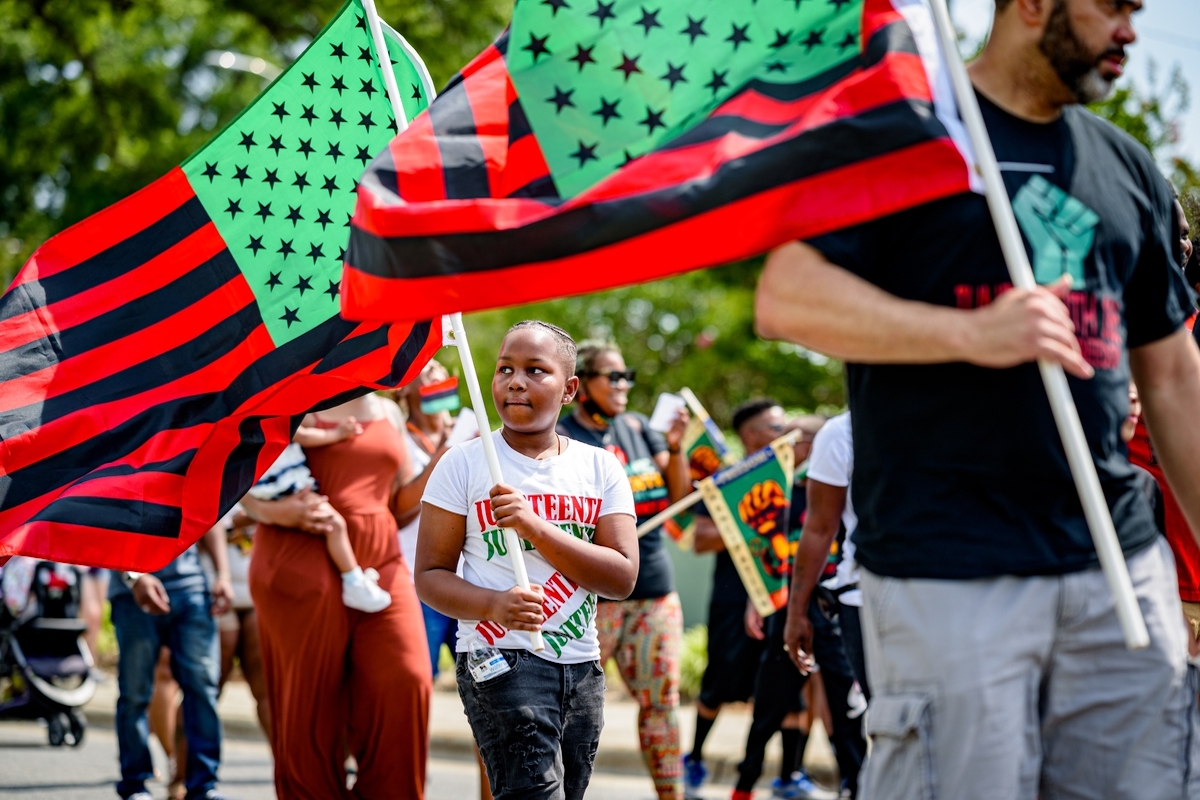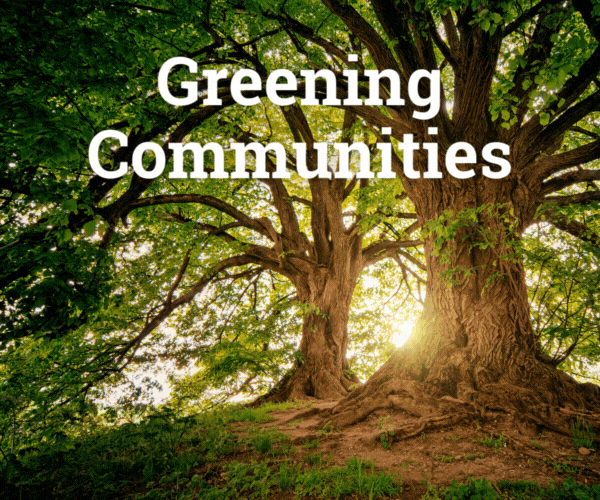Juneteenth, the federal holiday initially marking the emancipation of enslaved African Americans, has evolved into a broader celebration of human and civil rights. Under the Trump Administration, concerns are mounting over whether the president may seek to end the holiday as part of his broader attack on Diversity, Equity and Inclusion programs. This year, the holiday also falls amid the backdrop of continued ICE raids and deportations that have fueled protests nationwide. Pamela Asobo Anchang is publisher of the Los Angeles-based The Immigrant Magazine. An immigrant from Cameroon, she spoke with ACoM Co-director Julian Do about the significance of Juneteenth for her and the wider African diaspora community.
Before we get into the topic, can you share a bit of your own journey to the U.S.?
Thirty years ago, I arrived in the U.S. as a political refugee, fleeing persecution in Cameroon, Central Africa. My family and relatives were targeted by Cameroon’s current President Paul Biya’s dictatorship and his Cameroonian People’s Democratic Movement (CPDM) party because of our advocacy for a multi-party system. My American journey, like that of many African immigrants and refugees, began on the East Coast, first in New York and then in Maryland. I later met Charles Anchang, a fellow Cameroonian living in Los Angeles. I moved to Southern California to be with him and have resided here ever since.
What prompted you to launch Immigrant Magazine?
Pride, dignity, and the future. America is a nation of immigrants. With the exception of indigenous populations, everyone here has roots elsewhere. Immigrants have been instrumental in establishing and sustaining some of America’s most significant economic drivers, including Hollywood, Silicon Valley, and Wall Street. As a population, immigrants represent $1.2 trillion in purchasing power, equivalent in size to the population of South Korea or Spain and possessing an economic output comparable to Turkey’s GDP. However, the term “immigrant” surprisingly still carries many negative connotations, such as “outsider,” “resource drain,” “uneducated,” and “threat to public safety.” These stereotypes inflict harm upon immigrants and their families by fostering racial animosity, discrimination in employment and education, and even labor exploitation. My goal is to challenge these misconceptions and to help foster the respect and dignity that immigrants deserve.
As an immigrant from Africa, what is Juneteenth’s significance to you personally?
Upon my arrival in America, I was perceived as an outsider, even by African Americans, due to my immigrant background. However, our experiences were fundamentally similar. The Cameroonian people endured enslavement under British and French colonialism, achieving independence only in 1961—nearly a century after the Emancipation Proclamation in 1865. When Barack Obama first sought the presidency in 2007, some questioned whether African Americans should support him due to his heritage—a Black Kenyan father and a white Kansan mother. However, Obama dispelled these doubts, ultimately uniting people across diverse historical backgrounds and experiences. When Kamala Harris, the daughter of immigrants from Jamaica and India, ran for president, her background was never an issue. So, for me, Juneteenth serves as both a somber reminder of the tragic history of slavery and a celebration of the progress we have made, of the values that bind us together as a nation.
Those values are now being challenged by the current administration which has targeted immigrants specifically. What are you watching as the ICE raids and deportations continue?
A critical area needing attention is the discrimination faced by Black migrants from Africa. Obtaining visas for tourism, education, work, and family reunification has always been exceptionally difficult for citizens of any African nation, now more so given the president’s recent travel ban, which targets primarily African or Caribbean nations with predominantly Black populations. Given the far geographical distance to America, it’s extremely difficult for African individuals to enter the US illegally. Data show that approximately 95% of Black immigrants in America are legal residents, yet a significant percentage of those arrested and deported by ICE with no due process are from African nations or the Caribbean.
Have recent events changed how you see this country?
Having witnessed firsthand the suppression of political dissidents and the discrimination and violence faced by various tribes and religions under dictatorial regimes in Cameroon and other parts in Africa, I am appalled to see what appears to be a similar erosion of rights in America. I never imagined that censorship akin to a dictatorship, ICE raids on peaceful immigrants, and the curbing of free speech—issues I associate with oppressive regimes—would occur in a nation widely regarded as a beacon of democracy and human rights. In light of current national events, it is imperative that we both commemorate Juneteenth and unite to safeguard and advance human and civil rights, which are currently under threat from the Trump administration.






